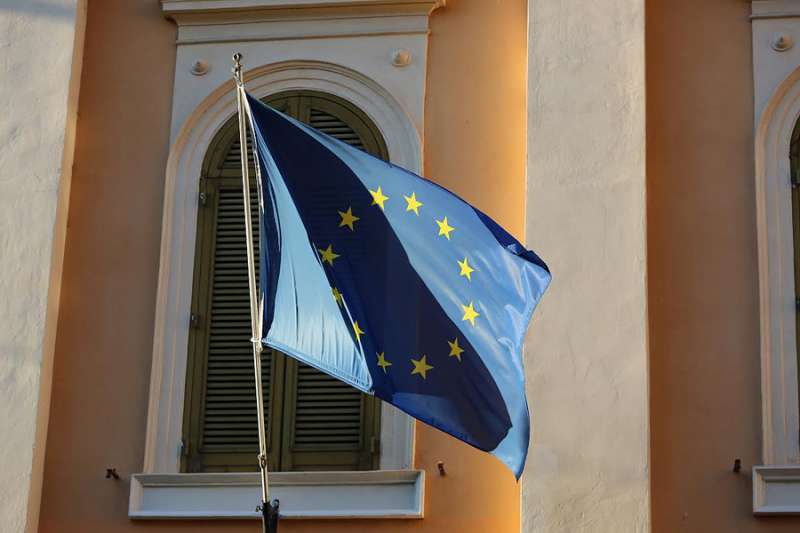Despite European Union guidelines and the work of a special envoy for religious freedom and belief, the state of religious freedom inside and outside of Europe at times seems to be worsening, not improving.
The commentator Martin Kugler has said there is a need for a cultural shift.
According to Kugler, who is president of the Vienna-based Observatory on Religious Intolerance and Discrimination against Christians, a cultural shift is needed to correct false assumptions about persecution against Christians.
There is an assumption that “Christians have always been perpetrators and never victims.” This belief seems to be “a dogma that prevents our elites from acknowledging the dramatic increase of both persecution against Christians outside Europe and hate crimes like vandalism against Churches in European countries.”
That means that “as long we do not address this anti-Christian narrative, secularist lobbying plays an easy game to marginalize Christian actors and religious impact in public (life),” he said.
There are worrisome hints that religious freedom is at risk on the continent.
Europe has experienced a surge of terrorist attacks with religious motivation in Europe, but also an increase in ultra-nationalism, which chooses a single religion as part of the national heritage and persecutes all the other minorities, Aid to the Church In Need said in its 2018 report on global religious freedom.
Since 2015, the France-based Observatoire de la Christianophobie has monitored incidents of religious intolerance in France. Its recent reports show that in February alone, France witnessed 47 serious acts against religious buildings. Of these, 15 were vandalism, 15 were robberies, ten were acts of desecration, and there was one arson.
The situation is also difficult in Germany, according to recent reports of the Observatory on Religious Intolerance and Discrimination against Christians. In June, the Observatory reported, there were 30 attacks against churches in Germany, both Lutheran and Catholic.
Kugler said that concerning religious freedom in Europe, the main challenge is “a strong anti-Christian bias among the cultural and political elite.”
“This phenomenon consists of strong personal prejudices and an understandable fear among journalists and politicians not to present oneself as to ‘sympathize’ with the Church by defending freedom of expression or conscientious objection.”
From a global perspective, the situation of religious freedom is not encouraging. On June 21, U.S. Secretary of State Mike Pompeo released the 2018 Annual Report on Religious Freedom. The report stressed that religious persecution is globally on the rise. Eighty percent of the world population suffers from restrictions on religious freedom.
Aid to the Church in Need’s 2018 report on global religious freedom considered the time period from June 2016 to June 2018. It listed 38 countries that suffer “grave and extreme violations of religious freedom.” Of these 38 countries, the report emphasized, 21 states are “places of persecution.” These are Afghanistan, Saudi Arabia, Bangladesh, Myanmar, China, North Korea, Eritrea, India, Indonesia, Iraq, Libya, Niger, Nigeria, Pakistan, Palestine, Syria, Somalia, Sudan, Turkmenistan, Uzbekistan, and Yemen.
In 2016 the European Union announced the creation of the position of the Special Envoy for the Promotion of Freedom of Religion or Belief outside the EU.
Jan Figel was appointed the first special envoy for this role. During his time in office, he gave substantial help to secure the release of some persecuted persons, like Czech missionary Petr Jašek and his two collaborators in Sudan, as well as the Sudanese human rights defender Ibrahim Mudawi Adam.
The special envoy’s office worked behind the scenes to bring Asia Bibi out of Pakistan. Bibi is the Pakistani Christian woman who was sentenced to death for blasphemy. Acquitted after eight years of imprisonment, her life was still in danger and she was forced to leave her home country.
Figel told CNA that “religious freedom and religious, social responsibility are much more on the agenda now than any time before and religious freedom is repeatedly integrated into the European Development Days.”
He has also supported the work of the European Academy of Religion, established in December 2016 in Bologna.
Among signs of progress, Figel includes the “Declaration on Human Dignity for Everyone Everywhere”. For him, this is a very timely contribution of scholars and international experts to promote “the universality of human rights stemming from the dignity of each person” as the foundational principle, defined in the Universal Declaration of Human Rights
Robert Clarke, director of European Advocacy for ADF International, was critical of the EU’s approach and its monitoring of its own work on freedom of religion and belief.
“Despite the EU’s commitment to evaluating progress in implementing the Guidelines three years after the adoption, we see that six years have passed and no such report has been released,” Clarke told CNA.
He called on the EU to act “transparently and with integrity” in its commitments to religious freedom. The EU should also strengthen the position of its special envoy, he said.
A January 2019 report of the European Parliament noted that there has been no public report about the implementation of the EU Guidelines on Freedom of Religion or Belief. It urged that such evaluation should be made public “without delay,” and with required progress reports.
ADF International has cited a 2018 report from a European Parliament Intergroup on religion and belief which concluded that the EU “could do much more to protect religious freedom.”

